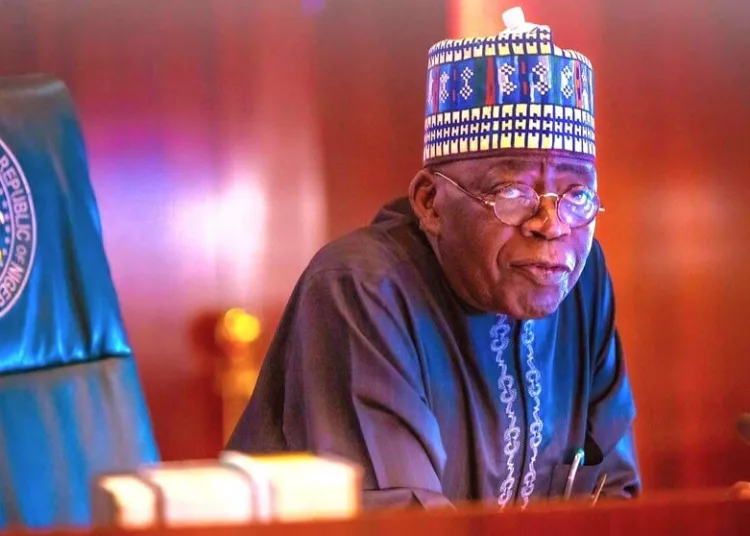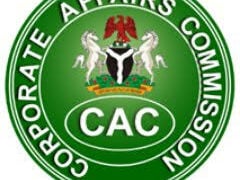Private sector operators have commended President Bola Tinubu, the coordinating minister for the Economy, the minister of Industry, Trade and Investment and the minister of Interior for suspending the implementation of the contentious Expatriate Employment Levy (EEL).
Following the intervention of the Nigerian Association of Chambers of Commerce, Industry, Mines, and Agriculture (NACCIMA) and other stakeholders, the federal government, over the weekend, suspended the implementation of the recently enacted Expatriate Employment Levy by the Federal Ministry of Interior.
President Bola Ahmed Tinubu, had last week, launched the Expatriate Employment Levy.
However, the introduction of the levy attracted widespread condemnation from the private sector with many decrying that the levy will impact the much-needed Foreign Direct Investment by the current administration to rein in the free fall of the naira.
NACCIMA President, Dele Kelvin Oye in a statement at the weekend, said the suspension of the levy followed the successful Trade and Investment outreach led by President Bola Ahmed Tinubu in Qatar and a productive meeting held with the minister of Industry, Trade and Investment and the minister of Interior.
According to him, “The Nigerian Association of Chambers of Commerce, Industry, Mines, and Agriculture (NACCIMA), in collaboration with key stakeholders, announces a temporary step down of the recently enacted Expatriate Employment Levy (EEL) by the Federal Ministry of Interior, as administered by the Nigerian Immigration Service.
Commending the move, chief executive of the CPPE, Dr Muda Yusuf, said, the gesture is a “demonstration of the fact that the Tinubu administration is responsive, democratic and inclusive in its governance process. It shows that the administration is a listening government. Responsiveness to the concerns of stakeholders is a critical attribute of true democracy.
“Meanwhile, as we reflect on next steps, we wish to stress that there are already extant laws and regulations within the framework of the Nigeria Immigration Act and the Expatriate Quota Handbook that squarely addresses the outcomes contemplated in the EEL. The handbook is robust and comprehensive and covers the critical issues of technology transfer, localization of jobs, and restrictions of some categories of expatriates from entry into the country, based on current skill gaps.”
Others in attendance with the president of NACCIMA Dele Oye were the President of Petroleum Technology Association, the President of Special Economic Zones Association, the Director General of the Nigerian Turkiye Business Council, the European Union Trade delegation head, the NACCIMA Chair of Digital Trade Group and the representatives of the National Association of Small and Medium Scale Enterprises NASME.
Oye further noted it was unanimously agreed at the meeting that “the implementation of the Expatriate Employment Levy will be paused, allowing for further consultations with NACCIMA and other vital stakeholders.
“A joint committee comprising members of the Ministry of Industry, Trade and Investment, the Ministry of Interior, NACCIMA, and other stakeholders will be formed to review the EEL policy.
“The rollout of the EEL, as initially proposed, will be deferred in accordance with the resolutions made.”
He added, “We extend our gratitude to the federal government of Nigeria, the Ministry of Industry, Trade and Investment, and the Ministry of Interior for their magnanimity, understanding and their willingness to engage in dialogue and consider the implications of the EEL on the business community.
“This is indicative of their commitment to creating an inviting atmosphere for both local and international investors.
“NACCIMA and its partners remain dedicated to working hand in hand with the government to ensure that policies align with the nation’s economic objectives, aiming to position Nigeria as a prime destination for investments.”
Oye charged, “We advise all investors, both current and prospective, to continue with their business activities and investment plans in Nigeria with confidence. The assurances provided by both ministers during the negotiations have reinforced the federal government of Nigeria’s intent to enhance the investment landscape and support economic growth.”
Continuing from earlier, the CPPE chief executive Muda Yusuf, noting that there is also the National Content Act and the Presidential Executive orders three and five which focuses on localisation of procurement and service opportunities, adding that “what needs to be done differently is to strengthen the institutional and regulatory effectiveness in the Ministry of Interior and the Immigration Service to ensure compliance and enforcement.
“The truth is that relevant institutions have over the years been considerably compromised. These are the gaps that need to be addressed. We really do not need a new policy, regulation or handbook on the employment of expatriates. A new regulation or policy will be superfluous. The current regulations or handbook could be tweaked, if necessary.
“Evidence of regulatory weaknesses are the numerous instances of expatriates operating in the retail sector in the open markets, competing with our market women and men. We surely do not lack expertise in retail trading. But we have seen cases of some expatriates taking up shops in our traditional markets.
Many of our indigenous traders in the markets have been displaced by these expatriates because they cannot compete with them.
“There are similar concerns expressed by our indigenous retailers in the computer and electronics, textiles and fabrics, and fashion accessories where expatriates are competing with them at the retail end of the market. Some of these companies dominate the entire value chain – they are the manufacturers, distributors and retailers.
These are some of the issues that need to be addressed by the immigration service and the ministry of interior. Competition with our struggling market women and men is clearly an unfair competition.











